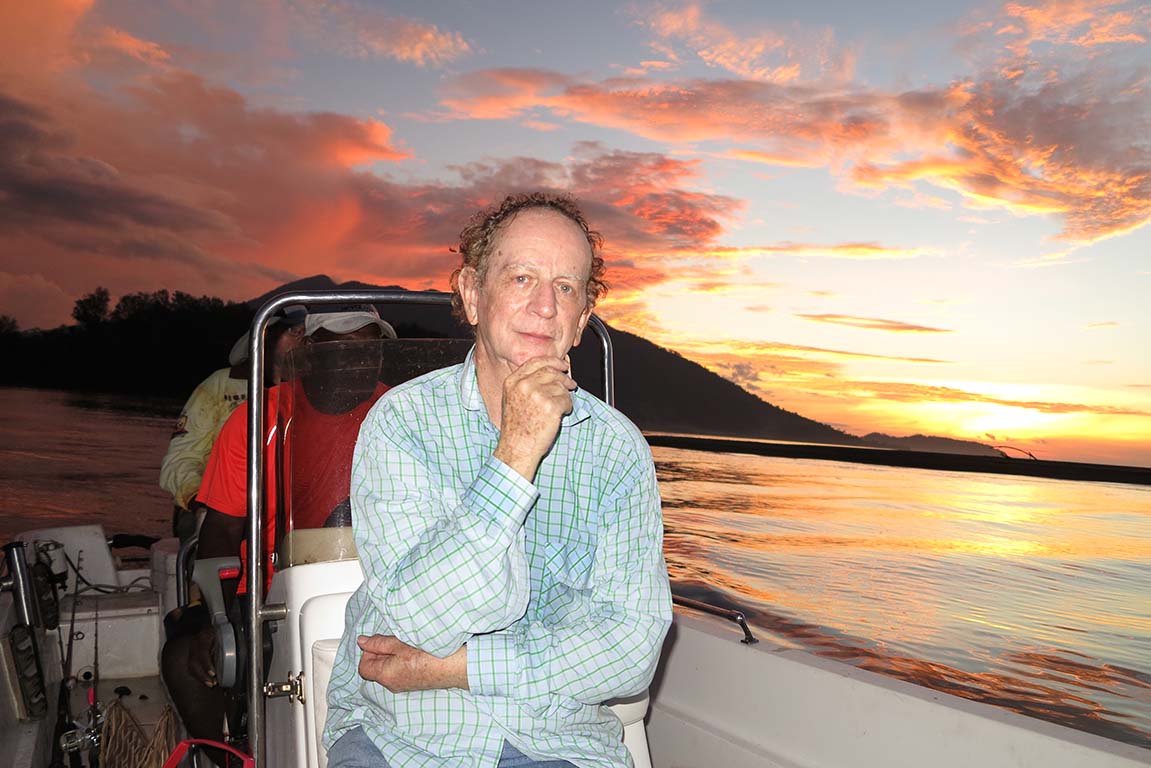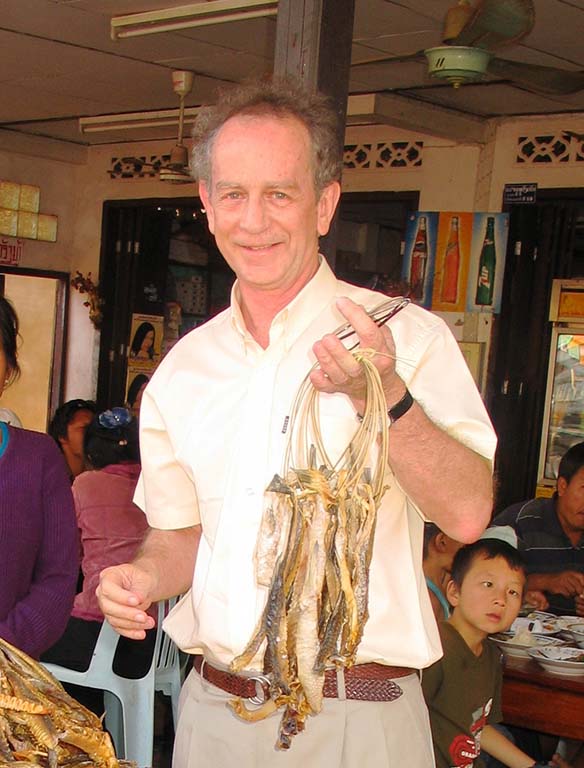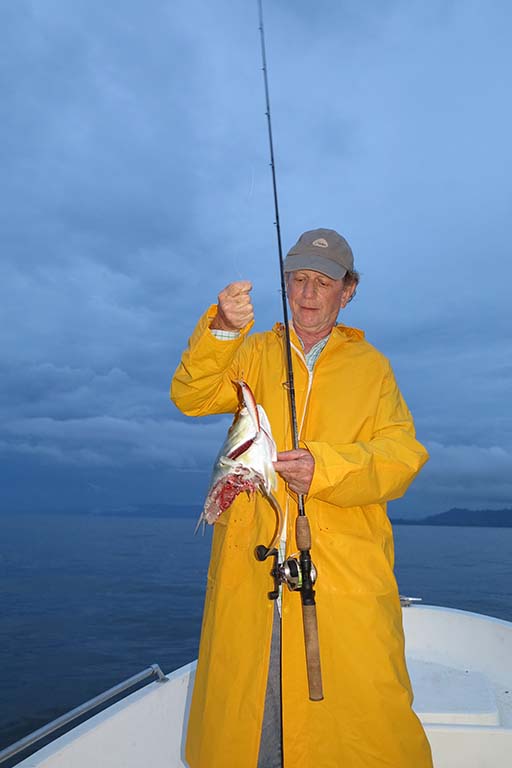Episode 3: 10 minutes with…. Chris Barlow
In RAIDs “10 minutes with…” series we interview experienced researchers to ask a few questions about their careers and tips for the younger generation! Here is episode 3 – Enjoy!
Chris Barlow is Fisheries Research Program Manager and sometimes cake connoisseur at ACIAR.
How did you get involved in international agricultural research?
For Chris it was a combination of early career opportunities and a natural inclination that developed his interest in and passion for international agriculture research.
After studying Zoology and Biochemistry at JCU, Chris got his start through a volunteer position straight out of university. Chris moved to Malaysia to work at the Fish Culture Research Station in Malacca as part of the Australian Volunteers Abroad program. An internationally renowned research station, it provided some great experiences and steep learning curves.
After two years, Chris moved to the Philippines to undertake some self-funded study at the Southeast Asian Fisheries Development Centre to further his skills and experiences.
Chris then moved back to Australia where he stayed for about 20 years. Chris worked at both NSW Fisheries and Queensland DPI conducting research in freshwater fisheries and aquaculture. Chris maintained active participation in international work through training of overseas colleagues and some involvement with ACIAR projects. This made up less than 5% of his work during those years.
In 2000 Chris was lucky enough to be offered the position of Fisheries Program Manager with the Mekong River Commission (MRC). He lived with his family in Cambodia and Lao PDR, and had work responsibilities covering those two countries and the Mekong areas of Thailand and Vietnam. After 9 years Chris returned to Australia to start with ACIAR.

Photo: Chris on location in West New Britain, PNG (tough job!)
What is your favourite thing about this work?
Chris most values two aspects of international development work. The first is being able to do something positive for the world community. The feeling you get from the knowledge that you are improving people’s lives and changing theirs and their children’s future for the better.
The second is global engagement. Working in different cultures and different places is stimulating both socially and intellectually. Engaging with people from many different situations provides a good reality check and grounding to consider the important things in life.

Photo: Chris holding dried fish in Lao PDR
What is your greatest achievement so far?
During Chris’ tenure, the fisheries program at the MRC was brought front and centre. Fisheries has always been an issue for the Commission, however other water management issues were given more attention. Chris credits the quality of research being conducted and the increased priority he placed on communications for building the profile and importance of fisheries within the Commission. It is now one of the top priorities in any planning processes related to water management in the Mekong.
What are some of the challenges you’ve faced?
Similar to the opinion of many others, Chris says the biggest challenges arise due to the clash of cultures. Across cultures people think differently, behave differently and place importance on different things. A simple yes in response to a question may mean anything but yes. And beware of saying anything that might lead to “loss of face”.
In areas where official salaries are low (and sometimes not paid), the salaried job becomes a secondary priority for people, who of necessity have to focus on other entrepreneurial activities to feed the family and make a living. Running internationally funded research in that environment is obviously a challenge.
Advice for RAIDers
Chris started out with three pieces of advice but came up with a few more:
- Struggle to maintain your idealism. Sometimes this work will wear you down so you need to fight to keep the passion that took you there in the first place.
- Maintain a sense of humour and most importantly the ability to laugh at yourself – it helps you maintain an appropriate perspective on all aspects of life.
- Count your blessings. This work will remind you not to take your privileged life for granted.
- Bust your ass. The career you want won’t just happen, you will need to work hard for it.
- Be prepared to make sacrifices. You might not earn as much, you may be away from family and friends and you might need to move overseas (though not always a sacrifice when I look at the photos from Chris’ work trips!). This work is not for everyone.
- Getting experience in Australia is the opposite of a backwards step – it builds the professional skills and institutional experience necessary for an international career.

Photo: Big fish…bigger shark


